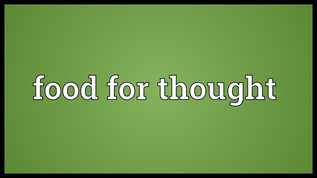
For those of you who may be reading this post not from out of Québec, Canada, you may not have heard of Imam Adil Charkaoui. Who is he? This Imam (or Muslim religious man) is “a Morocco-born Canadian citizen who was arrested in 2003 by the Government of Canada under a security certificate” (https://shorturl.at/AiWef).
This post, which is is not about Mr. Charkaoui per se (it could have been a case about another religious speaker), is rather about our odd Canadian laws. It is a translation of Mr. Philipe Léger’s thoughtful article, which was recently published in the Journal de Montréal (https://shorturl.at/Ikg1M). Thanks to Mr. Léger for teaching Bambi about this change in the Canadian criminal law. She was not aware of it.
Before sharing the article in question about the decision of the “DPCP” concerning Mr. Charkaoui, one must clarify what is the DPCP? It stands for “The Directeur des poursuites criminelles et pénales”. This means something like the “Director of Criminal and Penal Prosecution”. From the Government of Québec English translated website (https://shorturl.at/fEHdi), we learn that the DCPC entity “authorizes and directs criminal and penal prosecutions on behalf of the Québec State. The DPCP is a public body that exercises its powers independently from the government and other political authorities. Its work is not influenced by political, economic, police, media or popular pressure“.
Bearing the above in mind, below you can find an English translation of Mr. Léger’s interesting article, with thanks to the faithful Mr. Google Translate for his assistance:
“The DPCP ultimately decided that there was no incitement to hatred in Adil Charkaoui’s comments, within the meaning of Canadian law. No charges, therefore, will be filed against him.
Let us recall the events.
Charkaoui’s remarks were made six months ago, during a demonstration on October 28. The imam then took the microphone, and uttered the following words in front of a crowd:
“Allah, take care of these Zionist aggressors. Allah, take care of the enemies of the people of Gaza. Allah, identify them all, then exterminate them. And spare none of them!”
These words – public, recorded and proclaimed “Amen!” – are unequivocal: they are in the register of hate speech, and the call for violence against a group, the Zionists, that is, the Jews favourable to a Jewish state, the State of Israel“.
Religious Exemption
The DPCP was careful not to explain its decision. And I’m not going to play armchair Crown prosecutor here.
However, it is Charkaoui’s defence that is revealing.
You see, for him, these stinking sentences were only a call to God according to the imam, not a call to violence against the Jews.
Did the DPCP not move forward because the “Zionists” do not constitute a clear and identifiable group? Maybe.
Is it rather because of paragraph 319(3)(b) of the Canadian Criminal Code, to which Charkaoui refers with his “appeal to God”?
Wait, the what paragraph?
Imagine that there is a religious exemption in the Canadian Criminal Code for public incitement to hatred. An exemption added in 2004 by the Liberal government of Paul Martin.
Today, therefore, Canadian law gives precedence to freedom of religious expression over incitement to hatred, when the remarks are made “in good faith” or “based on a religious text in which one believes”.
If you are a rabbi, a priest, an imam or any other religious person, good news: the law gives you a privilege on public incitement to hatred.
A Two-speed Law
Because that’s exactly what it is: a religious privilege, which Charkaoui seemed to want to protect himself with as a defence.
This exemption raises all kinds of questions.
At what point does a religious statement made in “good faith” become reprehensible under criminal law? If the Charkaoui degree is not, when does it become so?
Why does religion have a free pass on hateful incitement? How can faith be an acceptable alibi? Why does religion benefit from an exemption, but not a political ideology for example?
Why would believers have an advantage over nonbelievers when it comes to hatred? Do you think I’m exaggerating? However, that’s it: one group – believers – has a right that another group does not have – non-believers. Can we really speak of the religious neutrality of the Canadian state, in this case?
Preferential Treatment [“passe-droit” in French]
Worse, it is quite clear: this provision is not meant for citizens who practice their religious freedom peacefully and respectfully.
It constitutes a free pass for fundamentalists, for whom the targets always converge: unbelievers, Jews, homosexuals and women…
The Canadian government currently offers them additional protection. Charkaoui wanted to use this protection.
This is, right at the heart of Canadian criminal law, an unreasonable religious accommodation [“un accommodement religieux déraisonnable” in French]”.

